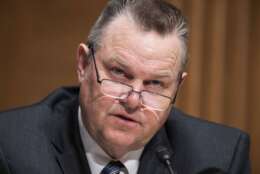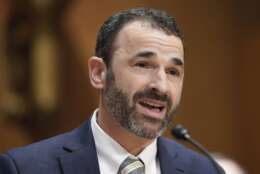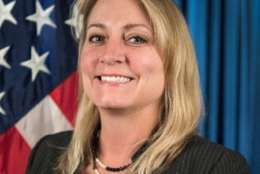Management
-
The continuing resolution funding the government runs out Friday at 11:59 p.m. So far the spending limits Republicans and Democrats agreed to, a week or so ago, have not translated into bills for full 2024 appropriations. That means neither a long-term continuing resolution nor a shutdown is off the table. For the latest, the Federal Drive with Tom Temin spoke with WTOP Capitol Hill correspondent Mitchell Miller.
January 16, 2024 -
In today's Federal Newscast: The Senate VA committee continues its pointed scrutiny of sexual harassment claims against the VA DEI office. The government’s top and first DEI official is headed to "the happiest place on Earth." And speaking of happiness, feds in the DMV got a snow day today.
January 16, 2024 -
Congressional leaders are preparing a stopgap bill to keep the federal government running into March and avoid a partial shutdown next week.
January 13, 2024 -
After chipping away more than a third of the federal retirement claims backlog, the Office of Personnel Management is now bracing for an upcoming surge in retirement applications.
January 12, 2024 -
The Postal Service says its competitive package business is growing, following its busy year-end holiday season.
January 12, 2024 -
Farming these days is a downright scientific enterprise. Precise measurement of soil, water, air, and seed conditions all figure in. The work never stops for scientists at the Agricultural Research Service.
January 12, 2024 -
In today's Federal Newscast: Postmaster General Louis DeJoy rejoices over the booming USPS package business. The National Treasury Employees Union sounds the alarm over a potential government shutdown. And with a partial government shutdown a week away, the Senate considers a short-term continuing resolution.
January 12, 2024 -
IRS Commissioner Danny Werfel told reporters on Thursday that a potential government shutdown wouldn’t keep the agency from starting the tax filing season on Jan. 29, as planned.
January 12, 2024 -
The $20 billion supplemental funding request for SSA over the next 10 years would be crucial to reach the quality of services that the public expects, the American Federation of Government Employees said.
January 11, 2024 -
Climate change and what is known as environmental justice top the list of management challenges for the Environmental Protection Agency this year. No surprise there. But the EPA's office of inspector general, in its annual listing, found several other priorities. For details, the Federal Drive with Tom Temin talked with supervisory auditor Claire McWilliams.
January 11, 2024 -
Rulemaking. The government does lots and lots of it. But because the power to regulate is the power to destroy, rulemaking has rules. And like all agency activities, it requires congressional oversight. The Select Committee on the Modernization of Congress asked the Government Accountability Office for ideas on how to improve rulemaking oversight.
January 10, 2024 -
In a long federal career, Elizabeth Cappello has typified people who get things done. A former Marine, she worked at the old U.S. Customs Service, later at U.S. Immigration and Customs Enforcement. Now, she's the deputy chief information officer for the Homeland Security Department. The Federal Drive with Tom Temin talked to her about her storied career, that just had an exclamation point attached to the end of it with a Presidential Rank Award.
January 10, 2024 -
National security eyebrows shot up last month when a former FBI counterintelligence special agent received a four-year prison sentence. Why? He had gone to work for a Russian oligarch, a sanctioned oligarch no less. Robert McGonigal had headed the New York field office counterintelligence work. For some of the lessons everyone with clearance should learn from this, the Federal Drive with Tom Temin talked with attorney Dan Meyer, managing partner at Tully Rinckey.
January 10, 2024 -
The Internal Revenue Service is answering more calls and providing help to taxpayers at levels not seen since the start of the COVID-19 pandemic.
January 10, 2024 -
Coast Guard Rear Adm. Christopher Bartz will be the next deputy CIO at the Homeland Security Department after spending his career with the service.
January 10, 2024















